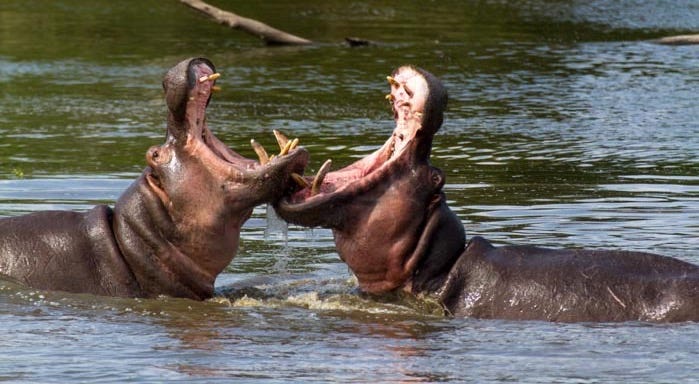
I confronted a taboo truth yesterday when the security patrol driver in my neighborhood said “how are you?” I was huffing and puffing on my daily walk up a steep hill, so I answered, “It’s a good day because I’ve done my walk.” I was not actually feeling that way. I usually do my walk in the afternoon after a productive morning, but this morning had been so unproductive that I gave up and walked early. So even though my answer to the security guard was just chit-chat, I felt like I was setting the bar quite low .
But his answer changed things. He said “I’m inspired by all you walkers around here. I should start doing it.”
Suddenly I felt better. I had a sense of accomplishment.
Our brain releases happy chemicals when we compare favorably, and threat chemicals when we compare unfavorably. What you compare yourself to is your choice, but we rarely notice the choice because we do it on autopilot.
So can you make yourself happy by finding favorable comparisons to make? This sounds crude. Rude. Evil. Yet I remembered a psychologist actually recommending this strategy. I went home and found the book on my shelf: “Britain on the Couch” by Oliver James.
It was full of statistics. I’m not a fan of such “studies” because I know how the sausage is made, but it gave me permission to see the obvious despite the tabooness of this idea. You are happier when you find favorable comparisons to make. You are unhappy when you make unfavorable comparisons.
The point is that YOU ARE ALWAYS CHOOSING THE COMPARISONS YOU MAKE.
You may think other people are judging you, or that “society” is making comparisons. But your brain is doing the score-keeping. It focuses on particular comparisons and ignores others because it’s wired by early experience. That old wiring controls your chemicals, so you make yourself powerless over your feelings if you blame them on externals like other people and “society.”
You find your power when notice your mind in the act of making comparisons. Then you can make new choices that lead to new emotions.
I’ve created a Status Anxiety Workshop to help people do this. In 6 group-coaching sessions, you’ll find out why the mammal brain cares so much about social status and rewire your social-comparison impulse in simple steps. It starts on October 11 and all mammals are welcome.
Animals compare themselves to others because asserting near a stronger individual often leads to severe injury. The mammal brain evolved to make careful decisions about when to assert and when to withdraw. We humans wire up this natural impulse in youth from the joy of self-assertion and the pain of failed assertions.
We hate to accept the animal urge for the one-up position because we’re trained to believe that animals are loving. We’re told that human social rivalry comes from “disorders” and “our society.” You risk being seen as a bad person if you question the presumption that nature is good and “our society is the problem.” Yet the conflict among animals has been thoroughly researched for a century. The term “pecking order” emerged from a 1921 PhD dissertation on the behavior of chicken. Here’s my reading list of books that taught me about social rivalry in mammals. My serotonin page has a simple introduction.
I relaxed when I learned about social comparison in mammals. It showed me that my feelings are not realistic information about the world. They’re just transitory chemicals sparked by old wiring. It’s hard to redirect your mind away from old wiring, so it’s nice to do it with a group.


